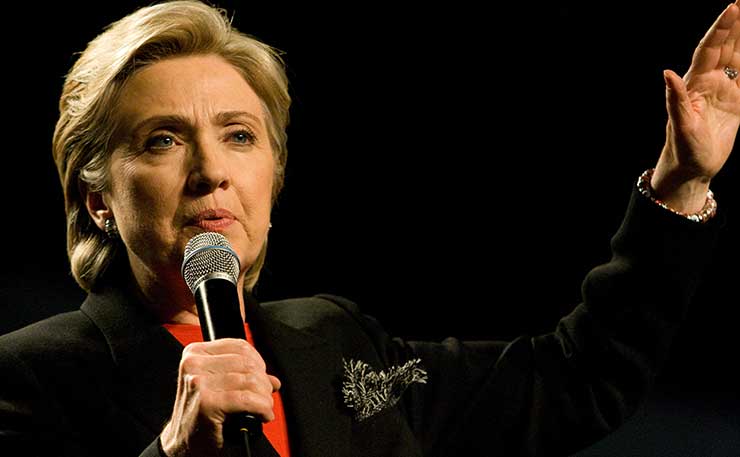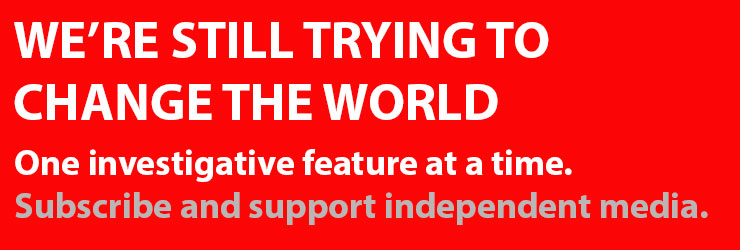A woman in the White House is inevitable. Dr Petra Bueskens takes a look at the journey to get there.
It’s not often that elections, let alone foreign ones, elicit such a strong emotional response as the wave of grief that broke across liberal, intellectual and left social circles in the aftermath of Donald Trump’s election victory.
Writer and actress Lena Dunham said that “Wednesday was a day of mourning. Thursday too. Hell, I’m giving us till Sunday.” On social media the grief was raw and deep. Many talked of being unable to process Trump’s victory and of feeling shocked, despairing, fearful, angry and anxious. The shock and distress were palpable, and certainly I felt it too.
Why do we – the collective feminist left in particular – feel this way? I think there are multiple levels beginning with the most personal. Clinton’s defeat is emblematic of the many defeats we have suffered in our attempts to forge careers and compete in the ostensible meritocracy. What we see, regardless of our feelings about her “dishonesty”, “war mongering”, and “corrupt” associations with banks – the epithets that weigh her down on the left and make it difficult to express political support let alone admiration – is that still in 2016 a talented, highly qualified, accomplished and eminently experienced woman coming through the established party political channels lost to an incompetent, blundering, inexperienced buffoon.
We mourn that even in the face of such manifestly unequal candidates Clinton is still the loser.
Hillary Clinton’s concession is the aggregate pain of every woman who has had no choice but to accept a preference for an inferior man.
— HuffPostWomen (@HuffPostWomen) November 9, 2016
We are pained and angry for her, for ourselves and for the message this sends our daughters. As Van Badham said in a tweet on the eve of Clinton’s election defeat, “Every little girl in America has just been told that if you work hard, be good & make nice you still can’t be president but your abuser can.” For many of us, her defeat is an outrageous miscarriage of justice and one we carry in our own experiences.
I can think of an immediate example in my own life. At my last place of work, a private higher education provider, there were several men with the proverbial “corner office”, literally and figuratively, who were no more qualified and in several cases demonstrably less so than senior women in the organisation. I recall one man who was promoted to (or perhaps appointed at) senior lecturer level who didn’t have a PhD. When I tentatively inquired about promotion to this level, with both a PhD and a book under my belt, I was told I “didn’t have enough administrative experience” to even apply. While this was true, I wasn’t chalking up the admin work (I had a 2 and 5-year-old at the time), it is also true that admin is low down the academic food chain. However, because administration is in the criteria for promotion, this was an apparently unbiased answer.
The problem was there were male senior lecturers who hadn’t met the far more important criteria of PhD’s and/or publications. Similarly with offices, these seemed to be granted on the basis of prestige and luck more than qualifications and experience.
What I learned at this workplace, and several others too, is that there are so-called objective criteria for hiring and promotion (often supported with egalitarian policies) but these are interpreted according to subjective and routinely biased beliefs. This is why capable women do not get promoted at the same rate as capable men and why women who are mothers (unlike men who are fathers) so often end up on the “mummy track” – sure this is about hours worked but it’s also about (mis)conceptions regarding mothers’ competence and commitment. Women cannot have faith in a meritocracy that systematically disadvantages them; nor can racial and ethnic minority groups.
This was driven home with force on the eve of Hillary Clinton’s defeat and for many of us it raised painful feelings of hopelessness. Just as her victory was our victory. Her defeat was our defeat.

My own experience is but one miniscule example in one field of endeavour, but we know discrimination is endemic, born out in social psychology studies that show when male and female candidates are deemed equally competent, the male candidate is routinely favoured. This gender bias is demonstrated in the fact that this preference remains even when identical applications are swapped – “James” will always be preferred to “Andrea” regardless of which application is labelled “James” or “Andrea”. But this is not the worst of it; additional studies have shown that when female candidates are clearly identified as outstanding – and therefore encroaching on the status territories of men – they flip into being unlikeable. Specifically, they come to be seen as hostile and untrustworthy.
In Clinton’s case, she was actively disliked even hated by those on the Right and Left, men and women, rich and poor, boomers and millennials alike: indeed hatred of her was arguably a key unifying political force. This hinged on two pervasive discourses: first, that she was untrustworthy, scheming and conniving (e.g., the email “scandal” which was given more media attention than all her policy issues combined); and second, that her candidacy was illegitimate and consequently that she didn’t even deserve to be in the race.
There were the pernicious accusations that she “rigged” the primaries when in fact she won by a lead of close to 3 million votes, and various other bombastic conspiracies including that she was a murderer. Very soon Trump’s pejorative monikers “crooked Hillary”, “nasty woman” and “liar” stuck. This manifested in calls to “lock her up” and, at its most extreme, to kill her. The truth behind the lie is that Clinton so violated patriarchal norms of womanly propriety that “we” didn’t know what to do with her but, like a Salem witch trial, call for her arrest and murder.
For having the audacity to pursue the most senior office in the land and being streets ahead of all her male rivals, Hillary Clinton found herself in the successful woman’s catch-22: “she can be good or liked but not both”. This is the painful conundrum that dogged and defined her campaign. Sady Doyle, drawing on her new book Trainwreck explores the public’s glee in tearing down successful women.
“It’s… the tendency to hate women when they’re up and love them when they’re down, which is the most perverse feature of trainwreck culture and our aversion to female success… Clinton may not have to [die]to win us over. But she fits the pattern. Over and over, we embrace her once we think she’s down for the count. When Bill Clinton’s affair with Monica Lewinsky was revealed – making Hillary appear before the nation as the betrayed and humiliated “little woman”… her approval ratings soared, from 42 to 64 per cent. When she ran against Barack Obama in the 2008 Democratic primary, people hated her even more feverishly than they do now, yet when he beat her, and she accepted a subordinate position in his administration, she became one of the US’s most popular politicians.
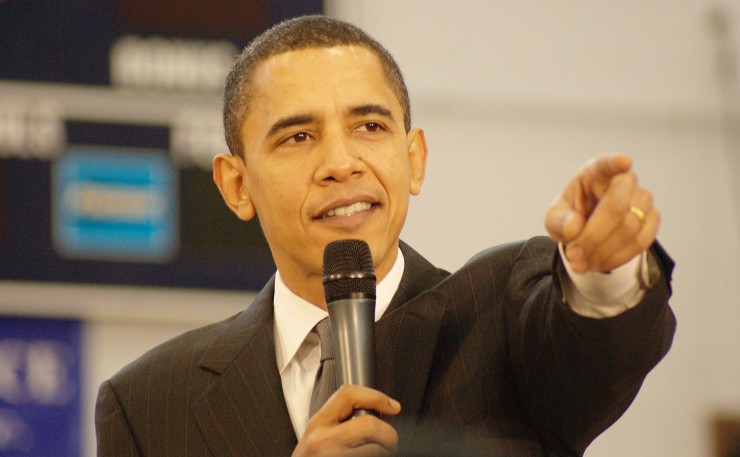
Moreover, it is this bias mechanism – akin to the status penalty described by the social psychologists – that redefined her positive qualities as “faults”. Coming through the accepted channels and having the requisite qualifications and experience made her an “establishment candidate” which was, in turn, recast as a liability. The offenses are manifold – she was too polished, too professional, too experienced, too connected. Since when have these qualities been liabilities for a professional politician?
Similarly, her ambition, normal among high achievers in any field, was defined as suspect and immoral. As Jill Abramson said, “Her fierce determination to seek the presidency a second time, eight years after being defeated by Barack Obama in the Democratic primaries, was seen as evidence that she was relentlessly ambitious. Her perseverance and resilience were mistaken for power madness.”
And it seems the aura of defeat has not lifted the criticism. Even now, in the aftermath of her political death, Clinton is being excoriated for not having stepped aside for a better man (code for: known her place). Commentators on the left like Owen Jones have said Clinton was a “disastrous choice”. Others insist she should have stepped aside and allowed the more likable Bernie Sanders to beat Trump (something that is unlikely to have happened). Taken to its logical extreme, it is Hillary Clinton’s fault – or the fault of the Democratic party who nominated her – that Trump is president. How dare she have thought she should prevail over less qualified, less experienced and less capable men?
This brings a whole new level of sexism to politics. By this tortuous logic – the exact inverse of the meritocracy we ostensibly live in – women in or aspiring to high office should step aside for inferior but more likeable candidates. The problem with this argument is that men in positions of authority are always more likeable than women in authority as numerous social psychology studies show. In effect these commentators are asking highly qualified women to accept this outrageous bias and quietly get out of the way. This is apparently in the name of equality, diversity and liberal values – because, you know, voting in and appointing more white men will ensure ever greater diversity! Again what this fails to see is that Hillary Clinton didn’t only fight for equality; she embodied it. Like Obama before her, her very existence transforms the paradigm of leadership.
What it also fails to see is that the reproduction of patriarchy – men as the ubiquitous face of power and authority – is an inextricable part of our broader social and political problem – the so-called “wicked problems” that face our age like climate change, the mass movement of refugees, war and inequality itself. We can’t just keep the same people in positions of authority (white, middle and upper-class men) reproducing their own back-scratching, likeable, world-destroying biases. What we need are new perspectives – generated from a variety of social, psychological, economic, political and cultural subject positions. It is precisely an expanded, genuinely cosmopolitan and intersectional perspective that we need. This isn’t limited to but it certainly includes women’s perspectives.
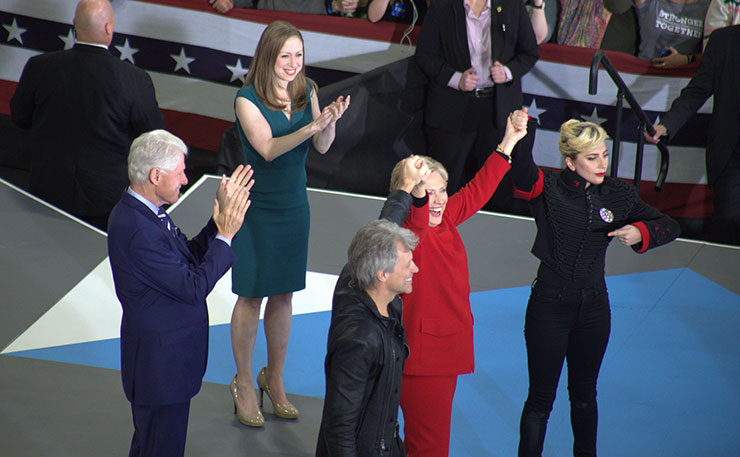
The fact that Clinton is a mother is in my view also significant – she has given birth to, nurtured and raised a child and this too informs her worldview. As policy research shows, putting more women in public office leads to better outcomes for women, many of which are long overdue. It means more and better paid parental leave policies, more flexibility at work for carers (almost always women), a greater focus on welfare and upholding women’s reproductive rights. We only need look to the Nordic countries as solid empirical evidence in this regard; more women in power means better social welfare policies.
As I have written elsewhere matricentric feminism is a gift to the world principally because the uniting of an ethic of care (motherhood) with an ethic of justice (feminism) is critical to the advancement of equality, including of the non-human, sentient world. Hillary Clinton holds this dual perspective that remains rare among men quite simply because so few have been (or are) primary carers, even co-equal primary careers, of dependent children. Her tireless work for children’s charities, strong support for paid parental leave, childcare, equal pay and women’s reproductive rights are evidence in this regard.
The fact that Clinton didn’t win and Trump did is because of irrational, misogynistic bias that would never have dogged a man but the answer to this is not to move competent and therefore unlikable women out of the way; it is to put more such women up so that we address, tackle and diffuse this pernicious bias. The only way we can do so is for women in senior office to become normal rather than a threatening aberration. We want more not less Hillary Clinton’s!
Another thing that is worth mentioning concerns nomenclature. We assume a first-name familiarity with “Hillary” that we do not with “Trump” who is invariably addressed with the formality and deference of his surname. These days that is preceded with “President elect”. We did the same with our first woman Prime Minister “Julia” and her opponent “Abbot”. In addition to the overt misogyny that bedevils women like Clinton and Gillard, this more subtle and seemingly friendly refusal to grant them authority is tantamount to a refusal to accept them in that role or to grant them equivalent status. This is especially stark give that such a convention is unanimously applied to men.
Referring to women in senior office without using their title or surname, however well intentioned, demonstrates a lack of distance and a concomitant lack of respect. It is evidence of our charged emotional relationship to women in power and our collective need to diminish them. We do not see women leaders as sufficiently eminent or, in Clinton’s case, “presidential”. “She doesn’t look presidential” chimed Trump in their final debate, but how can she when she is the first of her kind? Of course he was exploiting a prejudice here and he made a point of referring to her by her first name. “Hillary” is the name of choice for her supporters as well as her detractors, but it demonstrates an inappropriate familiarity and, as we all know, familiarity breeds contempt.
So why do we cry? We cry because it’s not fair that a woman of the quality, calibre and tenacity of Hillary Rodham Clinton was runner up to an incompetent, inexperienced, openly bigoted, dangerous buffoon. We cry because we know that hard fought for civil liberties for black and coloured people, for immigrants, refugees, LGBTI people and women’s reproductive rights are so very fragile. We cry because Trump’s victory gives bigots a mandate to harass, intimidate and abuse all these groups (as they already are) and to feel they have a licence to symbolically and actually assault women – aka “grab them by the p*ssy”. We grieve for fear of a world on the precipice of environmental disaster being lead by a man who believes climate change is a conspiracy of the Chinese. We grieve for the lost hope and lost opportunity of making history.
But, unlike the workplace Hillary Clinton was judged by the court of popular opinion and it is this that so shocks and distresses the experts, the liberals, the media pundits, the intelligentsia and the feminists alike; those who are shocked by the extent of the new right-wing populism as evidenced in the UK with Brexit and growing in Europe too. We have missed the fundamental change that has been happening all around us because of the echo chambers of our own curated newsfeeds.
While feminism is enjoying a resurgence in the west facilitated by social media, and progressive liberal values have seemingly prevailed; in fact, for the majority they have not. Liberal values are under attack all over the western world as a response to two decades of neo-liberalism with its community-destroying austerity policies; the feminist backlash evidenced in the new “manosphere” and “alt-right” groups; fear over terrorism (with little understanding of the critical role of the US in generating, funding and supporting the growth of “terrorism”); and of the unprecedented mass movement of refugees. There is a new reactionary desire to defend white privilege, male privilege and a parochial conception of national, or worse, “western”, culture.
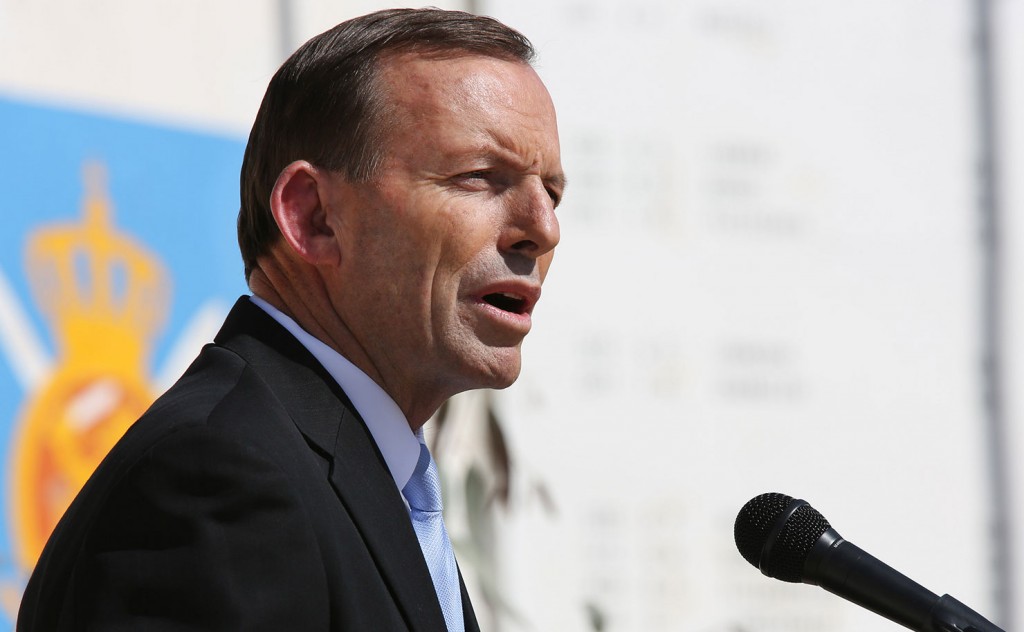
But even this is contested territory. The far right claim to be standing up for western humanism (see Tony Abbot’s new think tank as a prime example); they claim to be defending the centre against left radicals or “elites” who are allegedly destroying the culture by letting in refugees, Muslims, uppity women and the like (to the country, the government and other positions of power). This argument is replete with falsehoods and doublespeak given the very people who are producing culture – artists, writers, intellectuals, political activists, journalists and others in the so-called “chattering classes” – are the target of their campaign. It is not western culture that is being defended; rather, it is white tribalism and a colonialist, patriarchal version of the world that no longer exists.
These modern day crusaders of “western civilization” repudiate our greatest achievement: liberal humanism, that makes a cosmopolitan, human-rights based perspective possible. All else is war and parochialism, us and them, xenophobia and castes. And, in fact it is the early modern “elites” who forewarned this as a critical danger of democracy – popular opinion can be just, noble and true, but it is also true that it can succumb to groupthink and mob rule or what Alexis de Tocqueville in his famous and still timely study Democracy in America called “tyranny of the majority”. In a prophetic read of American culture, still defined as one the best books on both democracy and the US, he forewarned of the danger of a political system which based its rule on numbers rather than on “rightness or excellence”.
This was also a grave concern for JS Mill in his canonical On Liberty – the problem with democracy is that it can justify the abrogation of individual rights – say the rights of Muslim Americans or of women to make decision about our own bodies – and it also generates a disturbing uniformity of opinion. The point about rights is that they cannot and should not be reducible to anything, least of all popular opinion. This constitutes a form of democratic despotism.
This fashionable rejection of so-called “elites” – exploited to the hilt by disingenuous demagogues like Trump and our own Tony Abbot – is that the very culture they purport to protect is disproportionally created by precisely these groups and/or the liberal conditions that create them. Where would art be, we might ask, without gay men or civil rights without suffragettes and abolitionists? What they want to obliterate is critical thinkers and critical thinking not “elites”. Of course this populism speaks also to economic injustice – the decline in manufacturing jobs – that has been experienced disproportionately in recent decades by white working class men, but this doesn’t make the populist messages true (that refugees, immigrants, the Chinese or women are to blame). It is neoliberalism that is to blame – the decline in jobs and welfare and a new winner-takes-all capitalism. The truth is they are the elites. Trump is part of the 1 percent.
The idea that Clinton was so in bed with corporate America that Trump represents authentic change is patently absurd, yet it gained traction across liberal and conservative media and built the case that Clinton was more of the same when the reality is the opposite. Having a woman as president is such a radical departure from the norm that US society clearly wasn’t ready. We can’t mention “false consciousness” or “propaganda” because, according to the right-wing, that’s “elitist”. Fear of this charge means we arrive at the manifestly absurd situation that people as right wing, conservative and neoliberal as Trump, Nigel Farage, Tony Abbot and Malcolm Turnbull can claim to be on the side of the poor; these are the true elites but in a spectacularly successful public relations exercise it is now journalists, academics, artists, students and feminists who are “the elite”.
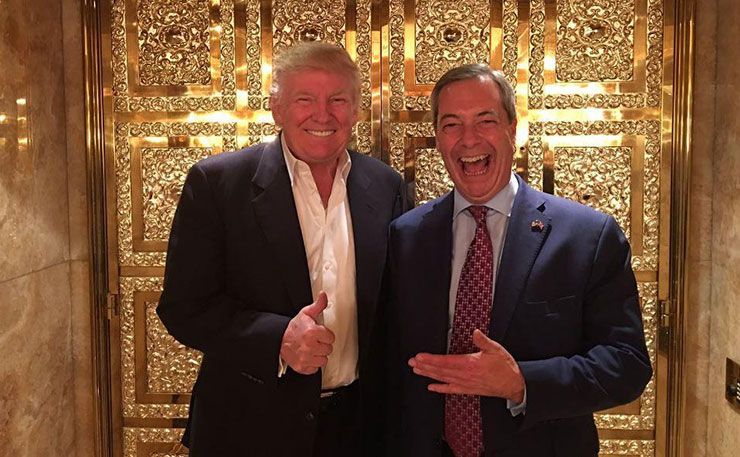
The curious thing about the United States is while being at the apex of the New World (for better and for worse) and since at least de Tocqueville’s time a place of individualism and ingenuity they have a fraught relationship with gender equality. While the fight for womanhood suffrage began in the 1840s, with the historic Seneca Falls Convention in 1848, the key campaigners did not see the vote materialise in their lifetime. It was the daughters, and in some cases granddaughters, of the great suffragettes who finally saw the vote granted to women in 1920. It took almost a century! That fight was long and hard and far behind our own rogue, convict settler nation who granted white women the vote, and the right to stand for parliament, in the remarkably early date of 1845 (in the state of South Australia).
Likewise the Equal Right Amendment (ERA) was introduced in the Congress for the first time in 1923 and yet it took until 1972 – effectively 50 years! – until it was passed by both houses, only to be defeated at the eleventh hour by Phyllis Schlafley and her vociferous campaign saying “equality” – as it was understood and promulgated by liberal feminists – would undermine housewives; a precedent perhaps for majority of white women (53%) who turned away from Clinton and voted for Trump. The ERA was never ratified by the requisite number of states and five states withdrew their ratification after they had given it. Again, so close but so far!
So while we lament the sexism, indeed misogyny, of this presidential campaign, there is a well-established history of almost getting there with key milestones toward gender equality in the US. Hillary Clinton is, in this sense, the consummate first female presidential candidate. She almost got there but was pulled back at the eleventh hour by the sway of popular conservatism. We can console ourselves that she has already made history. She has, as she says, put gigantic cracks in that hardest, highest glass ceiling. The next woman candidate will find it that much easier because of Clinton’s passion and tenacity.
There will no doubt be several stops and starts before the nation is prepared to have a woman in the Ova(l) office. But fate can only be delayed for so long.
Donate To New Matilda
New Matilda is a small, independent media outlet. We survive through reader contributions, and never losing a lawsuit. If you got something from this article, giving something back helps us to continue speaking truth to power. Every little bit counts.

